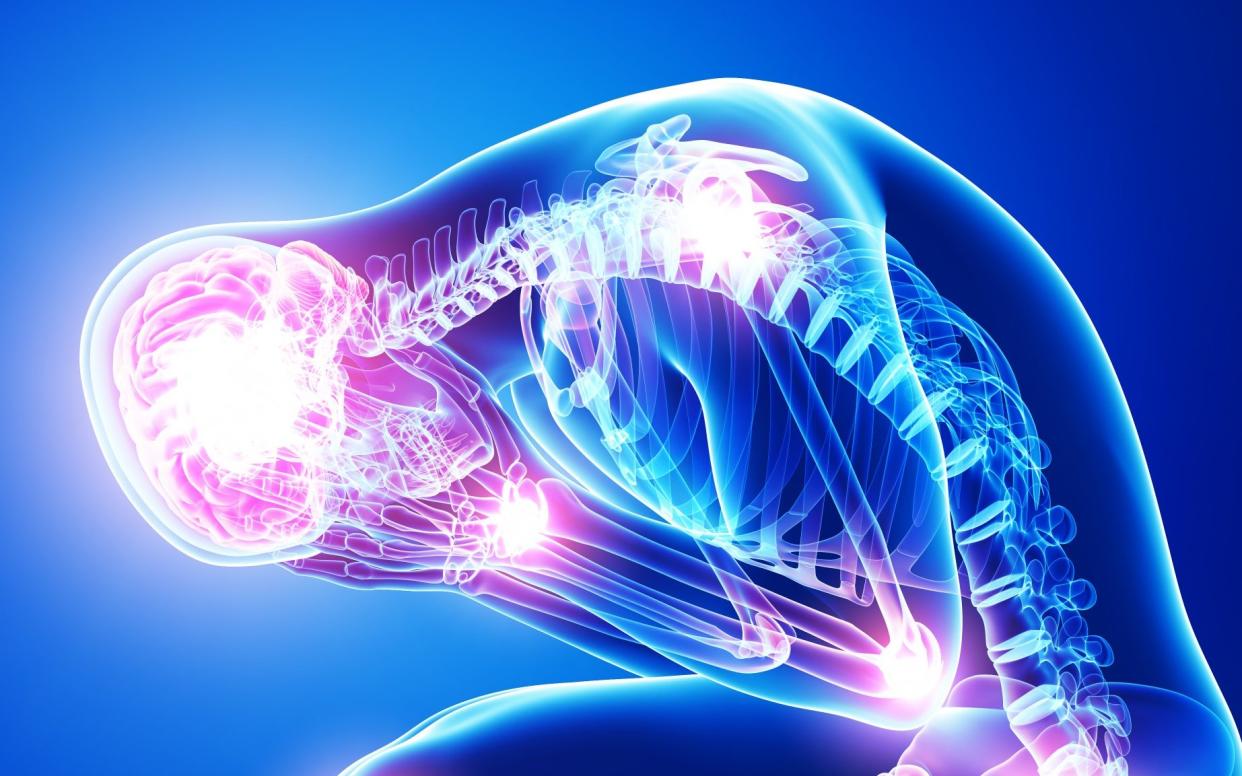Arthritis getting you down? A new approach that could ease your symptoms

Arthritis symptoms can be helped by positive thinking, Lancet research has suggested.
Some 800,000 people in the UK suffer from inflammatory rheumatic diseases, which can cause fatigue, discomfort and difficulty sleeping.
Studies have found that four in five such patients live with fatigue every day, affecting their ability to concentrate, go to work and live independently.
Researchers from the universities of Aberdeen and Glasgow compared three different types of care, provided to 368 people with a range of rheumatic diseases, including arthritis.
Participants were split into three groups and given exercise sessions, talking therapy or usual care, which meant being given an educational booklet.
The study found that those who were prescribed exercise or cognitive behavioural approaches fared much better than those on standard treatment.
Cognitive behavioural therapy is a type of psychological intervention that “targets unhelpful beliefs and behaviours” and aims to replace them with more flexible and positive approaches.
Interventions involved sessions over the phone, delivered by health professionals.
Those in the exercise group had five one-to-one 45-minute sessions over 30 weeks, providing tailored advice, while those who had talking therapy received an average of eight sessions over the same period.
Those in the usual care group were given an education booklet on fatigue.
The study found that talking therapies and advice on how to boost exercise levels were effective in reducing levels of fatigue.
Improvements in sleep
The group prescribed exercise saw a slightly greater impact on pain, fatigue and productivity, while those given talking therapy saw the greatest improvements in sleeping patterns.
The benefits continued for six months following the completion of the treatment.
People who were offered either talking therapy or exercise interventions also reported improved mental health and quality of life, compared to those who received usual care.
Experts said that hundreds of thousands of people with conditions such as arthritis could combat symptoms of fatigue with exercise and talking therapy.
People with inflammatory rheumatic diseases – which include conditions including rheumatoid arthritis, lupus and axial spondyloarthritis – could benefit from the treatments and they should be used as part of routine care, experts added.
The University of Glasgow’s Prof Neil Basu, the lead investigator who carried out the majority of the research, said: “Our study provides new evidence that some non-pharmacological interventions can be successfully and effectively delivered by non-specialist members of the clinical service.
“It has been encouraging to see that the interventions have led to improvements for participants even six months after the end of the treatment.
“It’s also great to see that these steps were impactful even when delivered via telephone. Since the onset of the pandemic, health care services are being reimagined to incorporate greater remote care. However, the evidence base to support this shift has generally been limited.”
Dr Neha Issar-Brown, the director of research and health intelligence at the charity Versus Arthritis, said: “Fatigue and chronic pain go hand in hand as the twin challenges for people living with inflammatory rheumatic diseases such as rheumatoid arthritis and lupus.
“But fatigue tends not to respond to medicines for these conditions, and often goes unrecognised by clinicians.”
She added: “There is an urgent and unmet need for more evidence-based interventions, including better access to non-drug treatments like cognitive behavioural therapies and supported physical activity, so more people with inflammatory rheumatic diseases can retain their independence, stay in work and enjoy better mental health, which we know these conditions can cruelly take away.”


